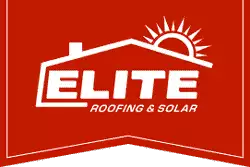How Solar Panels Stand Up Against Wind, Hail, Rain, and Other Storm Damage
Many homeowners are choosing to invest in roof-mounted solar panel arrays for the cost savings, added value to their home, and environmental benefits. However, as solar panels are a long-term investment, it makes sense to do your research about factors that can impact their lifespan. Here in Colorado, we’re no strangers to hail, and the last thing you want is for your solar panels to be destroyed by a major storm. But how likely is that, exactly? In today’s post, we’re taking a look at how well solar panels fare in hail, high winds, heavy rains, and other storm threats.
Can Solar Panels Withstand a Hail Storm?
As is the case with your roof, whether solar panels can stand up to a hail storm depends on the size and density of the hail. Generally speaking, however, solar panels these days are engineered and manufactured with the threat of storm damage in mind. Most solar panels these days are tested and built to withstand hail of up to one inch in diameter, with some panel systems performing even better than that.
Close to the mountains and along Colorado’s Front Range, the biggest threat to your roof, solar panels, gutters, and other portions of your home exterior is a hail storm. That means it’s wise to invest in products that will resist impact damage.
How Much Wind Can a Solar Panel Withstand?
Of course, while hail is typically the first type of storm most Coloradoans anticipate damaging their solar panels, we also receive plenty of wind storms in our region. Luckily, solar panels are very durable against high winds: solar arrays can withstand wind speeds well in excess of 100 mph, and typically up to 140 mph.
For reference, 140 mph would fall in the wind speed range of an F2 tornado (or a category 4 hurricane—but we don’t exactly get many of those here!)
Can Heavy Rain Damage Solar Panels?
While you might be thinking that water and electricity don’t mix, generally speaking rain is not at all a threat to solar panels. Since they’re built to be installed outdoors, solar panels are completely waterproof to prevent any shorts or other issues from moisture. In fact, truly torrential rain could even help to clean your solar panels and improve their performance!
Do Solar Panels Get Hit By Lightning?
Since it’s installed on your roof, your solar array is at some increased risk of being struck by lightning during a storm. Typically, though, it’s not your solar panels that are most likely to be struck and damaged; instead, inverters and controllers are at greater risk of harm. This means it’s especially important for your solar installer to effectively ground your solar panels, protecting them against lightning strikes.
Protecting Solar Panels Against Hail and Other Storm Damage
The most important time to take steps to protect your solar panels against hail, wind, and other storm damage is before installation. That is, the best protection against damage is to choose the most durable products available, such as solar panels with higher impact ratings from a known source like UL Solutions. Doing this research, particularly if you live in a more hail-prone area, can help ensure you get the greatest lifespan from your new solar array.
Elite Roofing & Solar: We’re Here for Your Storm Damage Needs
At Elite Roofing & Solar, we install solar arrays that are built to last. This means working with our customers to choose solar panels and other products that will stand up against hail, wind, and other storm damage. We also provide professional installation that will ensure your new array is properly grounded to protect against lightning strikes.
In addition, our roofing expertise helps us to minimize the effect your solar array will have on your roof. After installation, we fully inspect our work to make sure you don’t have roof damage—and then provide a warranty on the area of your roof where your new solar panel was installed.
We’re here to make your solar array the best investment it can be! Schedule your solar consultation today.







